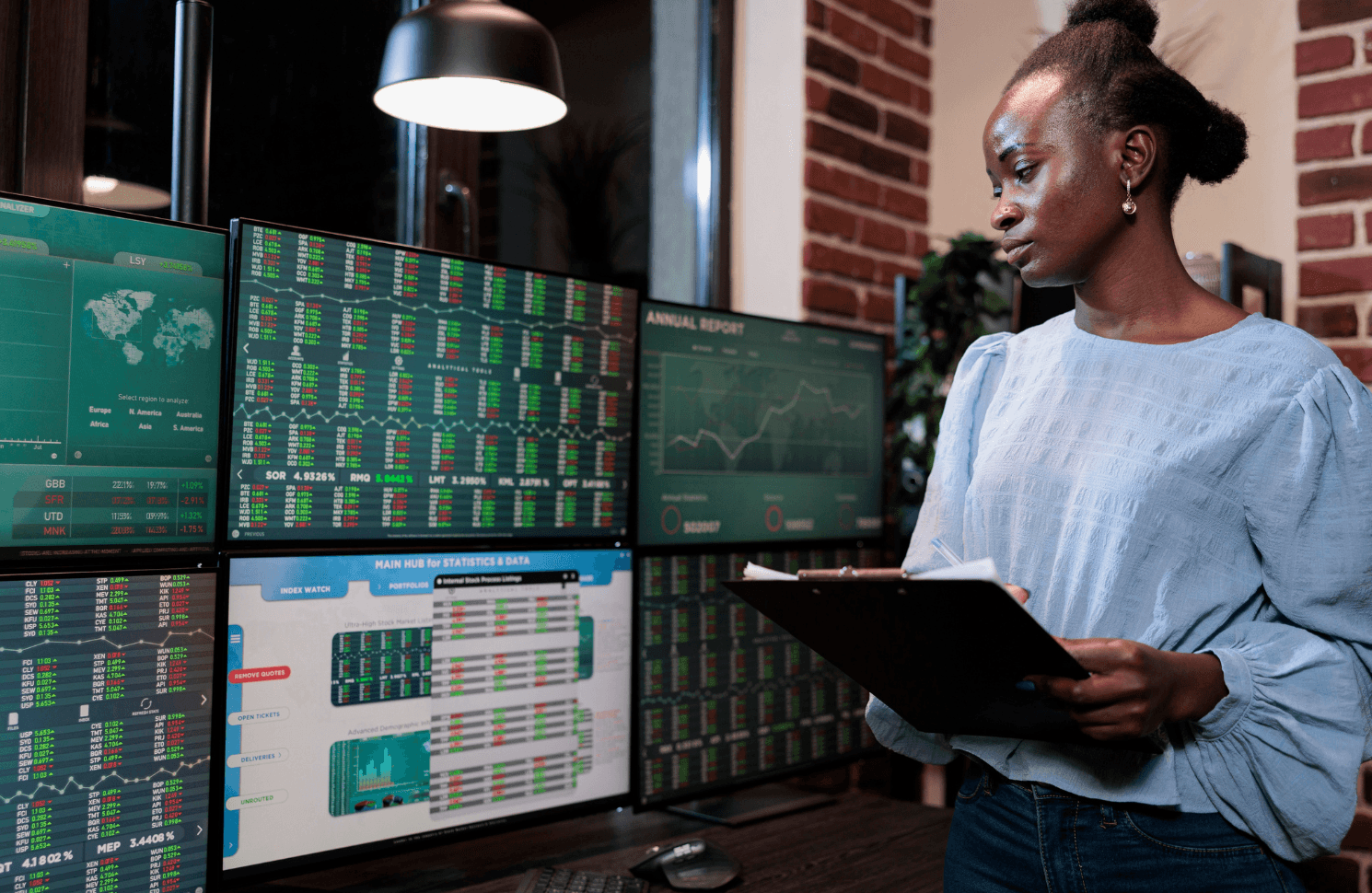

From farm to fork, AI closes gaps in food traceability
OCT. 7, 2025
6 Min Read
As supply chains grow more complex and global, every ingredient’s journey must be transparent and accountable from farm to table.
Food and beverage companies face multimillion-dollar risks from supply chain failures (a single product recall costs around $10 million in direct losses). This eye-opening figure shows why AI-powered traceability is no longer just a tech experiment but a strategic necessity for the industry. One hidden contamination or labeling error in a fragmented system can trigger a cascade of problems, from a costly recall to lasting brand damage. In an era of heightened consumer expectations, full visibility into the supply chain has become non-negotiable.
Forward-thinking CIOs and CTOs recognize that connecting every data point in the supply chain does more than satisfy regulators. It delivers tangible business value. By championing AI-based traceability initiatives, technology leaders turn what used to be a reactive compliance task into a proactive strategy for efficiency, risk reduction, and trust. With intelligent systems monitoring products in real time, companies can respond instantly to safety issues and even spot trends to improve operations. The message is clear: adopting AI for traceability safeguards consumers and the brand while boosting accountability and performance across the board.
key-takeaways
- 1. Food companies relying on fragmented tracking face blind spots that magnify the risks of recalls and compliance failures.
- 2. AI-powered traceability unifies data silos and delivers real-time visibility across the entire supply chain.
- 3. Compliance shifts from a reactive task to a proactive safeguard that also improves operational efficiency.
- 4. CIOs and CTOs are best positioned to turn traceability data into both safety assurances and business growth.
- 5. Strong partnerships ensure AI traceability projects deliver measurable ROI and accelerate time to value.
Fragmented tracking leaves food companies exposed to recall and compliance risks
Modern food supply chains involve a web of farms, factories, distributors, and retailers, making it difficult to trace each ingredient’s journey. Many companies still rely on siloed data systems and manual record-keeping, so when a problem arises, teams are forced into time-consuming detective work. This lack of full visibility means a contamination or quality issue might not be caught until products are already on store shelves, at which point a recall becomes inevitable and costly. Simply put, fragmented tracking leaves blind spots that put consumer safety and corporate compliance in constant jeopardy.
If an allergen is introduced at a processing plant without unified tracking, identifying all affected products is delayed, and more unsafe items could reach customers in the meantime. Only one in five product recalls is typically caught by the manufacturer’s own internal checks, so most issues are discovered only after harm has occurred. Such a reactive posture not only erodes consumer trust but also invites legal penalties for slow or insufficient responses. Clearly, fragmented traceability can turn any quality lapse into a crisis, underscoring the urgent need for a better solution.
"In an era of heightened consumer expectations, full visibility into the supply chain has become non-negotiable."
AI connects data silos for real-time visibility and faster response
AI-based traceability platforms break down data silos, providing a real-time view of the entire supply chain. Machine learning and IoT sensors continuously collect information across farms, factories, warehouses, and distribution centers, eliminating blind spots at each step. Instead of chasing paper trails, teams receive instant alerts when something looks off, such as a temperature spike in a truck or a subpar ingredient. It’s no surprise that 83% of supply chain professionals say robust traceability is crucial to their company’s success, because AI finally makes end-to-end transparency achievable at scale.
- Consolidated tracking from source to shelf: The system integrates data from every point of production and distribution into one centralized dashboard.
- Continuous monitoring and anomaly detection: Intelligent algorithms watch for any irregularities (temperature deviations, contamination signs, shipment delays) and immediately flag potential issues for investigation.
- Rapid identification of contamination sources: If a safety alert arises, AI tools quickly pinpoint the affected batch and its origin so recalls stay narrow and fast. Teams can isolate the problem within minutes, greatly reducing the scope and cost of a recall.
- Automated compliance reporting: The platform automatically captures all key data that regulators require and generates traceability records whenever needed. Audits that once took days of paperwork can be completed with a few clicks because every detail is logged and accessible.
- Seamless collaboration across the chain: Cloud-based traceability tools allow suppliers, manufacturers, and distributors to share data securely in real time. This shared visibility improves coordination and trust, since everyone sees the same up-to-date information on inventory, shipments, and quality.
By eliminating information silos and automating traceability, AI gives teams the power to respond to problems in minutes instead of days. If a contaminant or other hazard is detected, the system can instantly trace exactly which lots are affected, allowing the business to act before the issue spreads further. Real-time insight also means compliance stays on track without last-minute scrambles, since every critical tracking event is recorded and available whenever needed. Equipped with this level of visibility and speed, organizations move from a reactive stance to a proactive one, using traceability data not just to put out fires but to systematically improve operations.
Proactive traceability turns compliance efforts into operational improvements

AI makes compliance part of the daily routine instead of an afterthought. All required safety data is automatically collected as products move through the supply chain, so audits happen in the background. Instead of scrambling to compile records for an inspection, a company can retrieve a product’s digital trail in seconds. This proactive approach means potential issues are often flagged and resolved long before they escalate into violations. In effect, compliance shifts from a periodic headache to a continuous safeguard embedded in the production process.
Equally important, the same AI traceability system that keeps the company compliant also generates insights to streamline operations. The wealth of data collected can reveal hidden inefficiencies, pinpointing a processing line that produces too many defects or a supplier that routinely causes delays. Acting on these insights allows the business to reduce waste, improve inventory management, and optimize logistics. These improvements directly benefit the bottom line. One survey found that 45% of companies using advanced traceability saw their sales jump by over 30%. Preventing quality problems and recalls not only avoids losses but also builds brand loyalty and reliability. What starts as a compliance effort thus evolves into a continuous improvement engine that gives the company an edge.
CIOs lead AI traceability for safer operations and business advantage
CIOs and CTOs are uniquely positioned to turn traceability from a tech project into a core business capability. They bridge IT and operations to ensure AI solutions truly enhance both safety and efficiency.
Championing safety and compliance through data
A CIO can foster a safety culture built on data by embedding end-to-end monitoring into daily operations. With the right tools in place, every critical step (from sourcing ingredients to final delivery) is automatically logged and analyzed, and any deviation triggers an instant alert. This constant oversight turns food safety into a continuously tracked metric rather than a periodic checkbox. The organization experiences fewer surprises and a stronger safety record because compliance checks are baked into every process.
Unlocking business value from traceability insights
Beyond safety, CIOs leverage traceability data to boost business performance. Aggregating this information uncovers opportunities to cut costs and improve service, for instance, by identifying a chronically delayed supplier or an inefficient distribution route and then making changes. Using hard data for these decisions can significantly improve profitability and customer satisfaction. No wonder over 61% of supply chain leaders view advanced technology as a strategic investment and source of advantage. By treating traceability as both protection and a source of insight, CIOs turn it into an asset that drives business growth.
"With the right tools in place, every critical step (from sourcing ingredients to final delivery) is automatically logged and analyzed, and any deviation triggers an instant alert."
Lumenalta is supporting AI traceability initiatives in the food and beverage industry

As CIOs steer these projects, having the right partner is crucial. Lumenalta works as an extension of the IT team to implement AI traceability solutions that deliver both safety and measurable results. The company emphasizes rapid, iterative execution to get systems running quickly without major disruption. This approach reduces risk and accelerates time to value, so improvements in recall response, compliance, and efficiency appear within weeks rather than months.
Equally important, Lumenalta aligns every solution with the client’s business goals from day one. Its experts handle the full technology stack, tailoring the platform to the organization’s unique needs. Each project is tied to clear success metrics (for example, cutting recall resolution time in half) so the CIO can confidently demonstrate ROI to the board. The team also places emphasis on change management and user training, making sure employees are comfortable with the new tools and processes. Ultimately, this outcomes-focused partnership means CIOs can turn AI traceability from a compliance mandate into a driver of business growth.
table-of-contents
- Fragmented tracking leaves food companies exposed to recall and compliance risks
- AI connects data silos for real-time visibility and faster response
- Proactive traceability turns compliance efforts into operational improvements
- CIOs lead AI traceability for safer operations and business advantage
- Lumenalta supporting AI traceability initiatives in food and beverage
- Common questions about digital transformation
Common questions about digital transformation
How can food and beverage companies improve traceability with AI?
How do AI solutions ensure food safety compliance?
What challenges might companies face when implementing AI for traceability?
Is AI-powered traceability worth the investment for food companies?
Want to learn how artificial intelligence can bring more transparency and trust to your operations?










